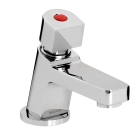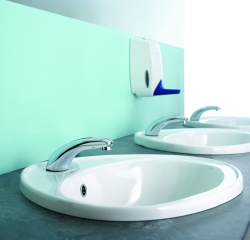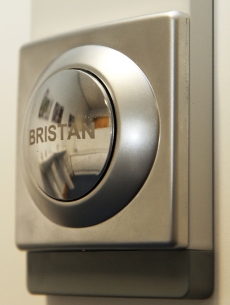Saving water comes with a cost saving

With growing demand putting pressure on UK water resources comes the need for businesses to manage their water usage effectively. The good news is that investing in effective water management can help businesses achieve substantial savings. Chris Tranter of Bristan tells you what you need to know.
The need for businesses around the world to act fast on easing water shortages is becoming more urgent. According to the Carbon Trust, by 2030 global water demand is predicted to increase to 40% above current supply. This was recognised at the UN Conference on Sustainable Development in Rio last year, with UN-Water issuing the statement: ‘The success of green economy depends on sustainable, integrated and resource-efficient management of water resources.’
Despite the perception that water in the UK is rather plentiful, high population density coupled with changing weather patterns means that many parts of the UK have less water per person than our European counterparts. Winters are becoming increasingly drier and summer rainfall is rapidly decreasing, and the European Agency predicts that total water demand in the UK could increase by 35% by the 2050s.
A further issue, it appears, is one of a national reluctance on the commercial front. According to a study by the Carbon Trust, nearly half (47%) of business executives believe that acting on sustainability issues such as water scarcity would decrease profits.
The reality, however, could not be further from the truth. Good management of water can extensively reduce the bottom line. The Environment Secretary estimates that British businesses can save around £23 billion a year by improving the way they use water and energy. Plus, the Government’s Enhanced Capital Allowance (ECA) scheme allows businesses to offset the cost of a project against tax in the first year.
 |
| Infra-red sensors on these taps deliver water only when required — and let it run long enough to rinse the basin afterwards. |
Add to the equation mounting Government drivers, including the UK Carbon Trust’s recent introduction of a new international standard on water reduction for business and the onus on BREEAM accreditation, and the argument for water-saving is firmly conclusive. Rather, it is no longer an option but an absolute must; sustainability and profitability now come hand in hand, irrespective of the sector or size of a business.
So, where to begin for the business owner starting out on the path of water management? Well, the good news is that manufacturers have gone a long way to make easier work of this once extremely complex task.
In terms of what to recommend, taps and showers featuring flow regulators can achieve significant water savings. Simple yet highly effective, flow regulators work by limiting the flow in the supply pipe. Typically, a basin tap running at mains pressure can easily deliver 12 l/min or more. In comparison, flow-regulated basin taps can offer a rate of flow as low as 2 l/min. In addition, some taps are fitted with a device that offers subtle resistance at the halfway point, raising the user’s awareness of the flow.
Better still, there are also now many sector-specific options. At Bristan, for example, we have recently launched a new suite of the softest-touch timed-flow taps on the market, requiring only a very light touch to operate — thus making them especially suitable for schools where ease of use for children is imperative. Plus, water-saving is accounted for with an integrated time flow valve that shuts of the water after a presettable time of 9 to 20 s for assured substantial water savings in line with BREEAM compliance.
In addition, there is the benefit of reduced maintenance as the risk of taps being left dripping, or worse still running, a very regular occurrence for schools, is eliminated. To put the issue into context, dripping taps waste at least 5500 l of water a year. By preventing this, schools could look to save £18 per tap per year alone — not to mention negating the untold wastage caused by a flooded washroom in the case of taps left running.
At the next level is non-touch technology. Utilising capacitance technology, these products respond to electrical impulses naturally generated by the human body, resulting in an exceptional level of detection and eliminating unnecessary wastage.
 |
| Showers with time control and a controlled flow of water have the potential to save water and energy. |
These non-touch taps operate when a hand comes within their range, and the water flow is automatically switched on. As long as the hand is moving with the action of washing, the water continues to flow. When the hand is removed from the sensor’s range, the control operates for a pre-selected period to cleanse the basin and then automatically switches off. The result is significant scope for water-saving and cost efficiencies while also helping to optimise hygiene by lessening the risk of cross-contamination.
For further water saving in washroom environments, a urinal infra-red automatic flush is a solid recommendation. Working in a similar way, infra-red technology detects human presence and automatically flushes the individual urinal after use, minimising the volume of water supplied directly from the mains. The direct flush also removes the need for an auto-flush cistern and associated plumbing used in traditional installations, which flush all urinals intermittently. With a large part of the water usage of a business typically attributed to urinal flushing, the result is substantial water savings.
There is no doubt that a sustainable approach to water is vital for the future success of any business and the nation as whole. Fortunately, aside from ensuring legislative compliance and an enhanced corporate image, the additional gains to be had, in terms of financial savings, are vast. So, for those business leaders who are not already managing their water consumption, surely it’s time to go with the flow?
Chris Tranter is product manager at Bristan.







